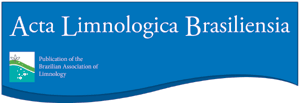Abstract:
Aim Macroinvertebrates are extensively employed as bioindicators for evaluating how stream ecosystems respond to alterations in physical and chemical habitats caused by human activity. Although family-taxonomic level is usually used to identify macroinvertebrates in biomonitoring programs, coarser taxonomic resolution may provide similar information. We aim to evaluate taxonomic sufficiency by comparing macroinvertebrate communities at the order and family levels to differentiate the effects of different land uses.
Methods We conducted colonization experiments using artificial substrates in streams representing three land use types: urban (U, n=3), intensive agriculture - dairy production (AD, n=4), and extensive cattle ranching (CR, n=4).
Results We obtained similar results using both taxonomic levels, which effectively distinguished the impacts of different land uses. In the sites examined, the majority of indicator groups exhibited only one family per order, with the exception of Ephemeroptera (Leptophlebiidae, Baetidae, and Caenidae). Notably, Baetidae and Caenidae were more prevalent in streams associated with extensive cattle ranching (CR).
Conclusions Although this study provides a clear precedent, further investigation of these systems and other land uses (e.g., afforestation) is needed to validate this pattern. Coarser taxonomic assessment holds potential as a cost-effective method for stream monitoring and assessment in Uruguay.
Keywords: order; family; Amphipoda; Littorinimorpha; Ephemeroptera

 Assessing the taxonomic sufficiency of macroinvertebrate communities and their potential to distinguish the impacts of land use on lowland streams in Uruguay
Assessing the taxonomic sufficiency of macroinvertebrate communities and their potential to distinguish the impacts of land use on lowland streams in Uruguay Thumbnail
Thumbnail
 Thumbnail
Thumbnail

